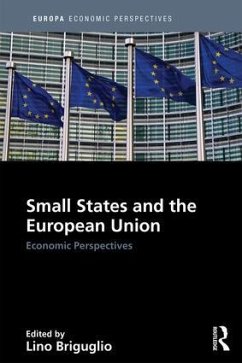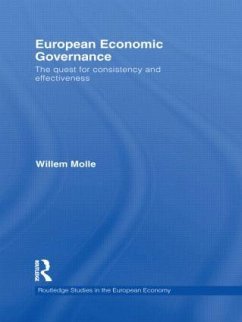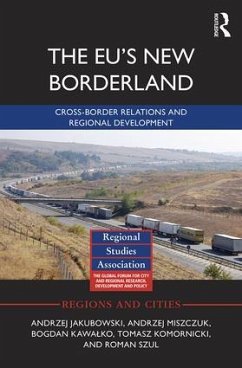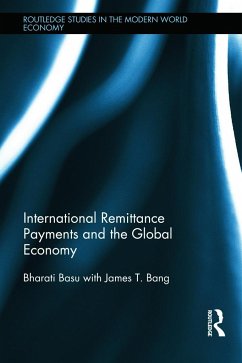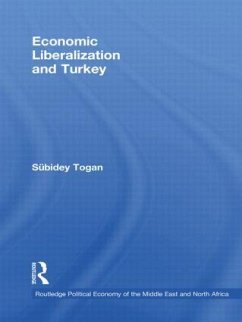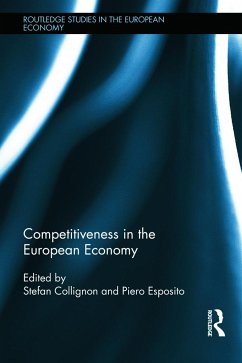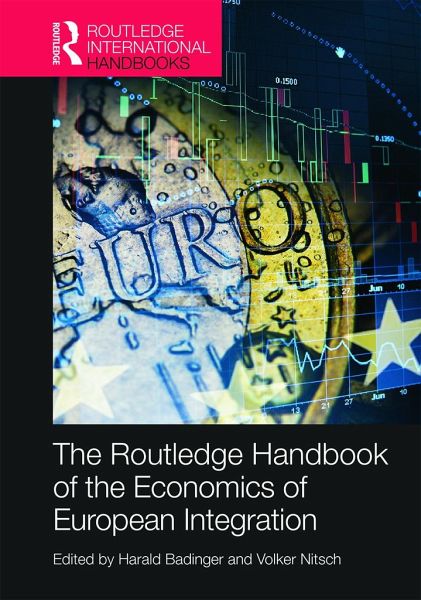
Routledge Handbook of the Economics of European Integration
Versandkostenfrei!
Versandfertig in über 4 Wochen
272,99 €
inkl. MwSt.
Weitere Ausgaben:

PAYBACK Punkte
136 °P sammeln!
Routledge Handbook of the Economics of European Integration provides readers with a brief but comprehensive overview of topics related to the process of European integration in the post-World War II period. Its short chapters reflect the most up-to-date and concise research, written by a collective of experts on their own subjects. The aim of this book is twofold. Firstly, the text illustrates the broad and diverse range of issues associated with European integration, and lastly, the key approaches and findings are summarised. Since institutional integration in Europe is an ongoing process, wi...
Routledge Handbook of the Economics of European Integration provides readers with a brief but comprehensive overview of topics related to the process of European integration in the post-World War II period. Its short chapters reflect the most up-to-date and concise research, written by a collective of experts on their own subjects. The aim of this book is twofold. Firstly, the text illustrates the broad and diverse range of issues associated with European integration, and lastly, the key approaches and findings are summarised. Since institutional integration in Europe is an ongoing process, with possibly frequent and sometimes rapid changes, the chapters are intended to focus on the key features of the economic analyses of these topics.




